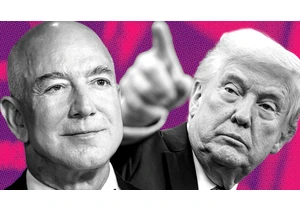Microsoft has ditched the board observer seat at OpenAI that has drawn regulatory scrutiny on both sides of the Atlantic, saying it was not necessary after the AI start-up’s governance had improved significantly in the past eight months.
Apple, which last month announced bringing OpenAI’s chatbot ChatGPT to its devices, would not take the observer role on OpenAI’s board after being widely expected to do so, the Financial Times reported, citing a person with direct knowledge of the matter. Apple did not respond to a request for comment.
An OpenAI spokesperson said the company will establish a new engagement approach by hosting regular stakeholder meetings with strategic partners such as Microsoft and Apple and investors such as Thrive Capital and Khosla Ventures.
Microsoft took a non-voting, observer position on OpenAI’s board in November last year after OpenAI CEO Sam Altman took back the reins of the company which operates the generative AI chatbot ChatGPT.
The seat meant it could attend OpenAI’s board meetings and access confidential information but had no voting rights on matters including electing or choosing directors.
The observer seat and Microsoft’s more than $10 billion investment in OpenAI have triggered unease among antitrust watchdogs in Europe, Britain and the U.S. over how much control it exerts over OpenAI.
Microsoft cited OpenAI’s new partnerships, innovation and growing customer base since Altman’s return to the startup for giving up its observer seat.
“Over the past eight months we have witnessed significant progress by the newly formed board and are confident in the company’s direction. Given all of this we no longer believe our limited role as an observer is necessary,” it said in a letter to OpenAI dated July 9.
EU antitrust regulators last month said the partnership would not be subjected to the bloc’s merger rules because Microsoft does not control OpenAI, but they would instead seek third-party views on the exclusivity clauses in the agreement.
In contrast, the British and U.S. antitrust watchdogs continue to have concerns as well as questions about Microsoft’s influence over OpenAI and the latter’s independence.
Microsoft and OpenAI are increasingly competing to sell AI technology to enterprise customers, aiming to generate revenue and demonstrate their independence to regulators to address antitrust concerns.
Additionally, Microsoft is expanding its AI offerings on the Azure platform and has hired Inflection’s CEO to head its consumer AI division, a move widely interpreted as an effort to diversify beyond OpenAI.
—Foo Yun Chee, Reuters
Accedi per aggiungere un commento
Altri post in questo gruppo

Influencers get a lot of stick these days. The latest thing they’re being blamed for: shark attacks.
Scientists have noted a recent rise in shark attacks, and according to new research p

As artificial intelligence gets smarter, a growing number of companies are increasing its implementation in their operations or more heavily promoting their own AI offerings. The buzzword for this

Consumers are only just starting to feel pain from Trump’s Liberation Day tariff spree. Amazon

When Donald Trump returned to the White House in 2025, many in the tech world hoped his promises to champion artificial intelligence and cut regulation would outweigh the risks of his famously vol

The first 27 satellites for Amazon’s Kuiper broadband internet constellation were launched into space from Florid

There are so many ways to die. You could fall off a cliff. A monk could light you on fire. A bat the size of a yacht could kick your head in. You’ve only just begun the game, and yet here you are,

Former Tinder CEO Renate Nyborg launched Meeno less than two years ago with the intention of it being an AI chatbot that help
